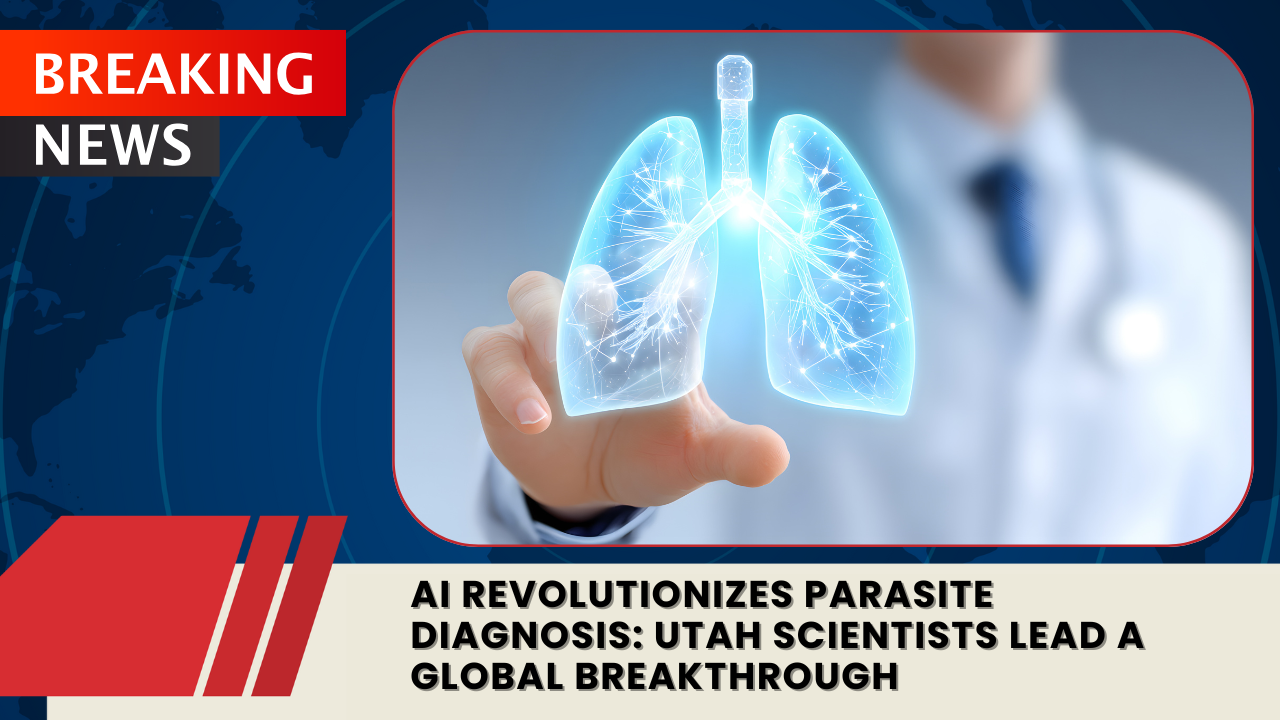SALT LAKE CITY — Artificial intelligence is redefining how scientists detect and diagnose human parasites, thanks to a groundbreaking advancement led by Utah researchers.
In March 2025, ARUP Laboratories, in partnership with Utah-based tech company Techcyte, became the first laboratory in the world to fully integrate AI into the parasite testing process. This innovation marks a major leap forward in the field of clinical parasitology — a discipline that traditionally relies on manual microscopic analysis.
According to Blaine Mathison, BS, M(ASCP), Technical Director of Parasitology at ARUP and adjunct lecturer at the University of Utah, the new system has shown significant improvements in clinical sensitivity — meaning the AI is more likely to detect harmful parasites that might otherwise be missed.
“Our validation studies have demonstrated that the AI algorithm has better clinical sensitivity, improving the likelihood that a pathogenic parasite may be detected,” Mathison said.
How the AI Works
The AI screening system was trained using over 4,000 parasite samples, allowing it to recognize microscopic organisms that can cause infections in humans. Once digital images of wet-mount slides are uploaded, the AI scans them for potential pathogens, flagging suspicious areas for human review.
Previously, parasite detection relied heavily on manual microscopy, which required skilled technologists to visually scan slides — a time-consuming process prone to human fatigue and oversight. With AI assistance, labs can process more samples faster, reducing workloads while improving accuracy.
In a recent research paper authored by Mathison, the AI system was found to detect 169 additional organisms that were missed by human technologists during testing.
“It has been a groundbreaking effort, and what we’ve accomplished is remarkable,” Mathison said.
The Role of Techcyte and Continued Innovation
The collaboration with Techcyte, a Utah tech firm specializing in digital diagnostics, was central to this success. The company’s advanced image-recognition technology provided the foundation for training the AI on thousands of verified parasite images.
Dr. Adam Barker, Chief Operations Officer at ARUP, emphasized that AI is only as effective as the expertise behind it. “An AI algorithm is only as good as the personnel inputting the data,” he said. “By combining expert parasitologists with advanced machine learning, we can now identify more organisms than ever before.”
A Glimpse into the Future of Medical Diagnostics
ARUP officials say this is only the beginning. The lab plans to continue expanding the use of AI across multiple testing areas, including microbiology and infectious disease diagnostics.
“ARUP will continue to develop innovative technologies, including AI solutions, to improve diagnostic capabilities and laboratory processes,” the company said in a statement.
The integration of AI into parasitology is expected to transform how medical professionals worldwide identify infections, offering faster, more accurate results — and ultimately, better patient care.



